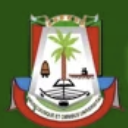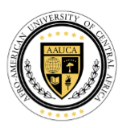The National University of Equatorial Guinea is described as follows:
Introduction: The National University of Equatorial Guinea (UNGE) is the main public higher education institution in Equatorial Guinea, Central Africa. The main campus is located in Malabo and there is also a campus in Bata.
Overview: It is a coeducational educational institution officially recognized by the Ministry of Education, Higher Education and Sports of Equatorial Guinea. The student size ranges from 1,000 to 1,999. It offers undergraduate and other degree programs and provides students with academic and non-academic facilities and services such as libraries and administrative services.
History: Its history can be traced back to the Spanish colonial period. In 1935, it was established as the Colonial Indigenous College, which was upgraded to the Indigenous Higher School in 1943. In 1958, it was renamed the St. Thomas Aquinas Higher School, and in 1959 it was changed to the Provincial Higher School. In 1971, it was renamed the Martin Luther King Higher School under the rule of dictator Macias Nguema. After Obiang came to power in 1979, it was transformed into the Malabo Teacher Training University College in 1984. The National Agricultural School was established in 1987. On January 6, 1995, Law No. 12/1995 was passed to merge several colleges and universities to form the National University of Equatorial Guinea.
Date of establishment: 1995.
Strength of school
Faculty: The specific number of teachers has not been clearly announced, but as the country's main university, it has a group of professional teachers.
Curriculum setting: Covers multiple disciplines such as education, political science, engineering, medicine, law, biology, literature, history, religious studies, communication, earth science, philosophy, etc.
Nature of institution: public university.
Educational philosophy: There is no official clear statement, but as a comprehensive university, it should be committed to cultivating well-rounded professional talents and providing intellectual support for the country's social, economic, cultural and other developments.
Key laboratories and disciplines: There are no reports on key laboratories. Key disciplines include education, political science, engineering, medicine, law, biology, etc.
Faculty: There are the Faculty of Environment, the Faculty of Arts and Social Sciences, the Faculty of Education and Science in Malabo, the Faculty of Education and Science in Bata, the Faculty of Architecture and Engineering in Bata, the Faculty of Medicine, the Faculty of Humanities and Religious Sciences, etc., and also includes 3 affiliated university schools.
Ranking: Ranked 10821 in the world university rankings and 1st in Equatorial Guinea.
Cost: No specific tuition and other cost information has been announced, but as a public university, the cost is generally relatively low to ensure educational opportunities for domestic students.
Campus environment: The main campus is located on Hassan II Avenue in Malabo. The president's office building was built in 1949 and is part of the country's architectural heritage. The dormitory of the Malabo campus can accommodate 200 people, and there is also a campus in Bata. In addition, the school is also responsible for the Luba Crater Scientific Reserve and conducts many research projects in the local area.
-

National University of Equatorial Guinea
-

Universidad Africana de Guinea Ecuatorial
-

Mesoamerican University
-

Istmo University
-

Mariano Galvez University of Guatemala
-

Regional University of Guatemala
-

Galileo University
-

Francisco Marroquín University
-

Rafael Landívar University
-

University of the Valley of Guatemala
-

University of San Carlos of Guatemala
-

Technological Institute of Tlaxcala Plateau
-

Golfo University
-

Technological University of South Sonora
-

Technological University of Huejotzingo
-

Tizimín Institute of Technology
-

Chilpancingo Institute of Technology
